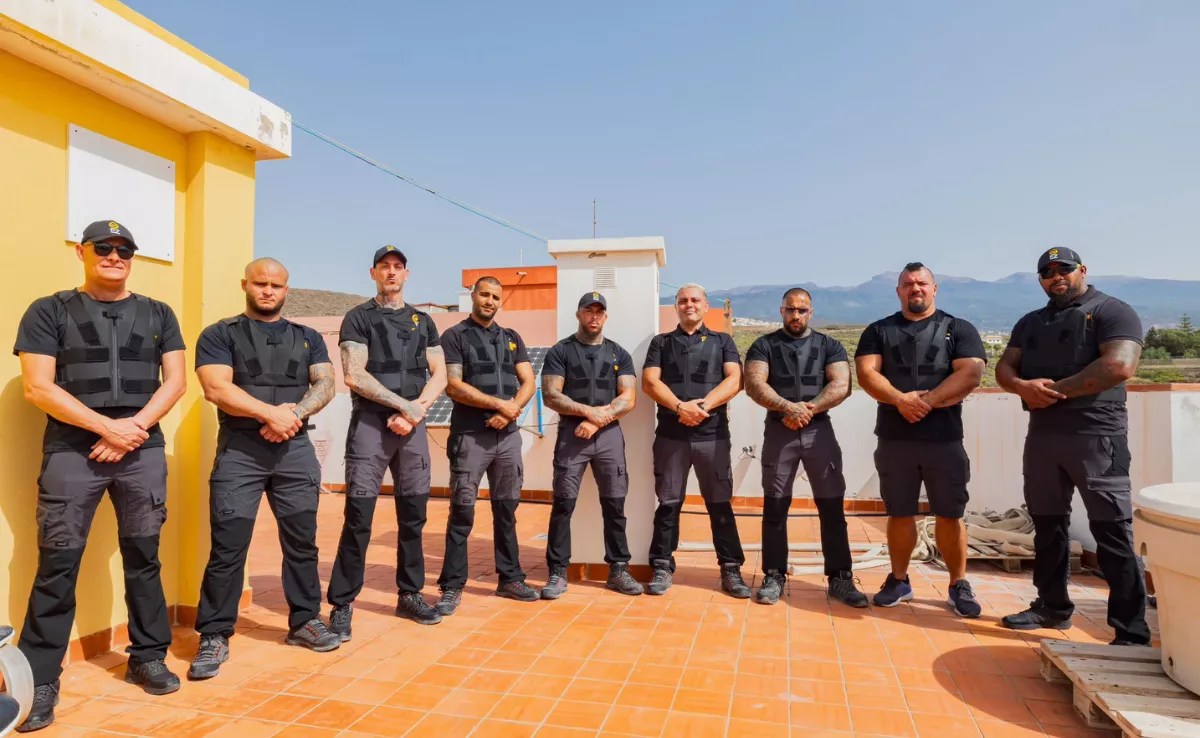
SANTA CRUZ DE TENERIFE, June 25 (EUROPA PRESS) –
The island of La Palma has hosted this week the second edition of the Wine Tourism Innovation and Sustainability Forum, a meeting organized by the Chair of Agrotourism and Wine Tourism of the Canary Islands of the Canarian Institute of Agri-Food Quality (ICCA) and the University of La Laguna (ULL) in which agents and professionals from the sector share their ways and tools to transmit the essence of a region through its link with the wine product from an innovative and sustainable perspective.
The event began with a welcome from Carolina Real Torres, deputy director of the Chair, together with the ICCA director, José Basilio Pérez, who welcomed the participants and expressed to the guests the importance of creating spaces for debate in which improvement projects for wine tourism in the archipelago. Likewise, Marta Domínguez Herrera, director of the Secretariat of Institutional and Business Chairs at the University of La Laguna, reinforced the commitment that the University has with the Chair and with all activities that enhance and promote the primary and wine sector.
The first session of the Forum began with the intervention of the expert in Wine Tourism and Business Administration from Western Michigan University, Abel Duarte Alonso. The current tenured professor in International Business at the RMIT University Vietnam School of Business and Management defined the main terms by which the meeting was developed, that is, innovation and sustainability. For him, innovation is associated with the concept established by Kanter in 1983: “The process of putting into use any new idea that solves problems”, and sustainability as a tool that “involves finding ways to reconcile the balance between economic development, environmental and social”.
Wine tourism, understood as a dynamic activity in the rural environment, requires a fusion between the culture, gastronomy and music of the region. According to Abel, it is at this point where sustainability and wine tourism really come together and make a tourist destination competitive and of quality.
Alexandre Sousa Guedes, professor in the Department of Economics, Sociology and Administration at the University of Trás-Os-Montes e Alto Douro in Portugal, taught the participants, through data, the influence that wine tourism has on different countries and on the world. Sousa Guedes started from the idea that if all wine-producing countries used exemplary models of how to offer quality wine tourism experiences as a reference, by 2030 the figures for income from the activity would triple.
“It is about giving different dimensions to wine tourism. One focused on the vineyard, that is, on outdoor activities. Another, more focused on exploitation infrastructures such as the wine production cycle and, finally, designing an experience that brings tourists closer to the environment and to the complementary sectors of wine tourism, for example, the primary sector”, added the teacher as a solution to diversify the same activity.
AN IDEAL WINE TOURISM DESTINATION.
Gabriel Santos García, deputy director of the Canary Islands Agrotourism and Wine Tourism Chair, began the panel discussion by asking the speakers what the Canary Islands need to be an ideal wine tourism destination. Miren Stillitani Mugica, coordinator of the INTER-Actions Project of the Gran Canaria Wine Route, considers that one of the points to work on is the collection of data and the preparation of reports that allow knowing the interests and profiles of that target audience that wishes to Live unique wine tourism experiences. Additionally, she shares that the key is also to invest in professionals specialized in the area to offer a differentiated tourist offer.
Likewise, Hernán Tejera Oval, manager of the Canary Islands Wine Tourism Cluster, confesses that the fear of most entrepreneurs is risking capital without obtaining benefits. However, he affirms that wine tourism “can be viable and economically profitable in the Canary Islands if we compare it with neighboring regions that do not produce the same number of liters of wine per year and, even so, are a world reference in the sector.”
Abel Duarte Alonso emphasized that in the Canary Islands “they are not looking to achieve mass tourism, but rather to create experiences that enhance heritage and culture, since that is where much of its attraction lies.” In contrast, Alexandre Sousa Guedes focused his intervention more on studying the tourist profile and the added value that good use of digitalization would give the Islands, beyond a good wine tourism experience. “The archipelago, due to its uniqueness, is already a differentiated destination, but if they analyze the data that tourists leave when choosing them, they can surely improve aspects. For example, air connectivity for foreign visitors.”
For his part, Miguel Angel Mejías Vera, professor at the University of La Laguna and member of the Chair, mentions the importance of adding to the wine tourism experience the promotion of local Canarian products from the first meeting tourists have: “The presence of the wines and food produced in the archipelago in all the airports, as a first contact. Then, in restaurants, with a staff trained to give hints of the stories behind each one of them”.
“LET’S NOT NEGLECT WHAT GIVES SENSE TO THE ACTIVITY”
As a member of the Chair and professor at the ULL, Miguel Angel insists that the tourist part should not outweigh the wine on this path. “Let’s not neglect what gives meaning to the activity, let’s take advantage of the plurality and variety of our wineries to offer exclusive and close activities”, he comments.
At the end, the deputy director of the Chair, Gabriel Santos García, recalled that in November La Palma will host the VIII Agroenotourism Meeting of the Canary Islands, a cycle that began in Lanzarote in 2016 and has passed through the different islands of the archipelago, creating synergies between the primary and tourism sectors, allowing ideas, work and experiences to be brought together, in order to develop a multidisciplinary network of professionals, businessmen and entities that work in the promotion and exploitation of wine tourism and agro-tourism in the Canary Islands.
















